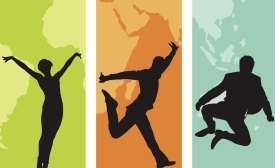soft power
A week-long exhibition on China Intangible Culture kicked off here [Kathmandu] on Thursday, offering Nepalese an opportunity to gain an insight into the rich and abundant Chinese history and culture.
China's soft power as the world's biggest property buyer is under severe strain due to a government crackdown on capital flight and the Qatar controversy, which is expected to drive a lot of Arab money into the property market in western countries.
Many analysts and scholars have said that Addis Ababa is emerging as a major actor in the Sub-Regional, Continental, and even global scenes by mentioning material growth indicators such as economic growth, military advancement or demographic evolution. [...] Ethiopia's impeccable peacekeeping exploits can serve as an influence whilst enhancing the country's standing in the diplomatic table as a soft power.
Going by headline indicators, Singapore's country brand looks strong enough. The Lion City tops the world in "online presence" in the Global Cities Index released this month. In the 2016 Soft Power 30 ranking of countries by their soft power, Singapore moved up two places to break into the top 20. But what fresh challenges lie in wait, in this new world of Brexit and Mr. Donald Trump? How well does Singapore stand in promoting and protecting its international reputation so as to continue to boost its magnetic pull for the choicest investments, trade, tourism and talent?
I believe that a final, negotiated FY 2018 budget request for the State Department should include continued funding – if not a gradual increase – of what has been a relatively small amount of money allocated every year to the soft power of “cultural diplomacy.” Roughly defined as the use of an exchange of ideas, traditions, and values to strengthen relations and encourage engagement, cultural diplomacy is perhaps most easily seen in the use of music, arts, and sports to build cross-cultural understanding.

Former U.S. Ambassador Curtis S. Chin on the proposed funding cuts to cross-cultural programs.







